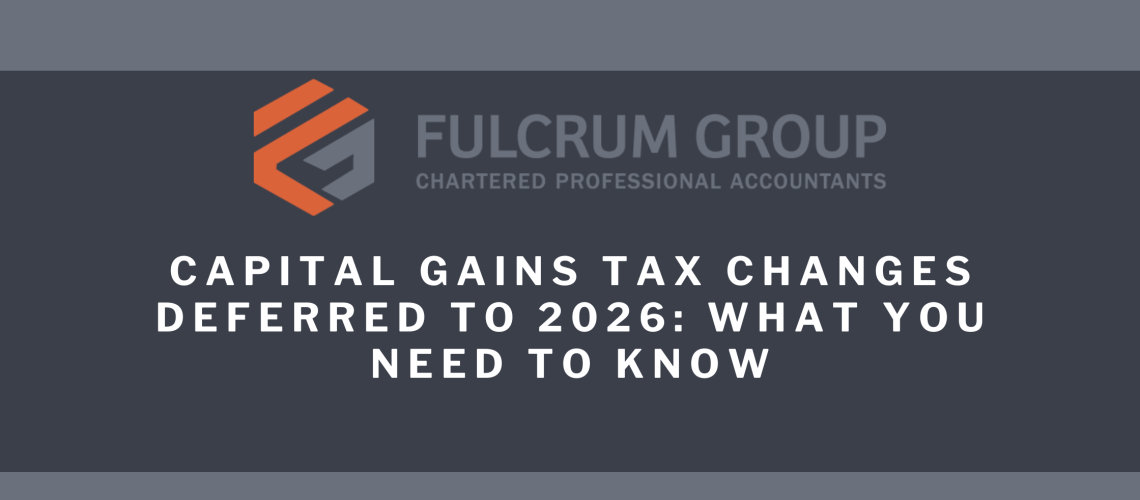After months of uncertainty, Canada’s Department of Finance announced on January 31, 2025, that the date for increasing the capital gains inclusion rate will be deferred from June 25, 2024, to January 1, 2026. (source: https://www.canada.ca/en/revenue-agency/news/newsroom/tax-tips/tax-tips-2025/update-cra-administration-proposed-capital-gains-taxation-changes.html)
Under the most recent proposal:
- For individuals:
- Capital gains up to CA$250,000 annually would be taxed at the current one-half inclusion rate.
- Capital gains above CA$250,000 annually would be taxed at the two-thirds inclusion rate, starting January 1, 2026.
- For corporations and most types of trusts:
- All capital gains would be subject to the two-thirds inclusion rate as of January 1, 2026.
However, until (and unless) this proposal is passed into law, the currently enacted rate of one-half continues to apply to all capital gains. Below is a concise overview of the key points, including related measures and administrative guidance from the Canada Revenue Agency (CRA).
Reverting to the One-Half Inclusion Rate
In light of the government’s deferral, the CRA has confirmed that it has reverted to administering the currently enacted one-half inclusion rate for all capital gains realized before January 1, 2026. This means:
- Individuals and trusts:
- CRA forms will be updated in the coming weeks to reflect the one-half rate for the 2024 and 2025 tax years.
- Relief from late-filing penalties and arrears interest is available for affected taxpayers:
- Until June 2, 2025, for T1 individual filers.
- Until May 1, 2025, for T3 trust filers.
- Corporations:
- Can continue filing using the one-half inclusion rate.
- For those corporations that already filed based on the original proposal’s June 25, 2024 effective date, the CRA will coordinate corrective reassessments to revert any applied two-thirds rate back to one-half.
Lifetime Capital Gains Exemption Increase Still on Track
Despite the deferral of the capital gains inclusion rate increase, the proposed increase in the Lifetime Capital Gains Exemption (LCGE) to $1.25 million remains scheduled for June 25, 2024. This enhancement applies to:
- Eligible small business corporation shares
- Qualified farming or fishing property
The CRA has confirmed that it will continue to administer the proposed LCGE increase on dispositions occurring on or after June 25, 2024. Additionally, indexation of the LCGE is set to resume in 2026.
Introduction of the Canadian Entrepreneurs’ Incentive
Another measure included in the government’s 2024 budget announcement—the Canadian Entrepreneurs’ Incentive—will proceed on its original timeline and come into effect starting in the 2025 tax year. Details on this new incentive are still emerging, but it is designed to encourage and reward entrepreneurs who invest in and grow Canadian businesses.
Practical Implications and Considerations
- Delayed Filing of 2024 Returns:
- Accountants and taxpayers may experience delays as CRA forms are being updated to reflect the reverted one-half inclusion rate for 2024.
- This may affect software updates and filing practices, so stay tuned for official CRA announcements.
- Future Legislative Uncertainty:
- The proposed changes to the capital gains inclusion rate still require legislative approval.
- If a new government takes office before or in 2025, there is always the possibility that these proposals could be amended or dropped entirely.
- Corporations That Filed Under the Proposed Rate:
- If your corporation followed earlier CRA guidance and used the two-thirds rate for dispositions after June 24, 2024, be prepared for corrective reassessments. The CRA has said it will work with these taxpayers to reverse any additional tax collected based on the unenacted rate.
- Employee Stock Options:
- An increase in the capital gains inclusion rate often has flow-through effects on certain stock option deductions. While not explicitly detailed in some announcements, such ancillary measures could also be deferred or reconsidered.
- Keep an eye out for further clarification from Finance Canada.
Conclusion
The shifting timelines and ongoing legislative process regarding Canada’s capital gains inclusion rate have created additional complexity for taxpayers and advisors alike. While the date for increasing the rate to two-thirds has been pushed to January 1, 2026, there is no guarantee that the proposal will ultimately become law—or remain in its current form.
For now, all capital gains realized before January 1, 2026, will be subject to the one-half inclusion rate, and the CRA has extended penalty and interest relief for certain late filers. The increase to the Lifetime Capital Gains Exemption (effective June 25, 2024) and the Canadian Entrepreneurs’ Incentive (effective for the 2025 tax year) are both expected to proceed as planned.
If you have any questions regarding these developments, or would like assistance navigating your tax obligations, please contact our office.

